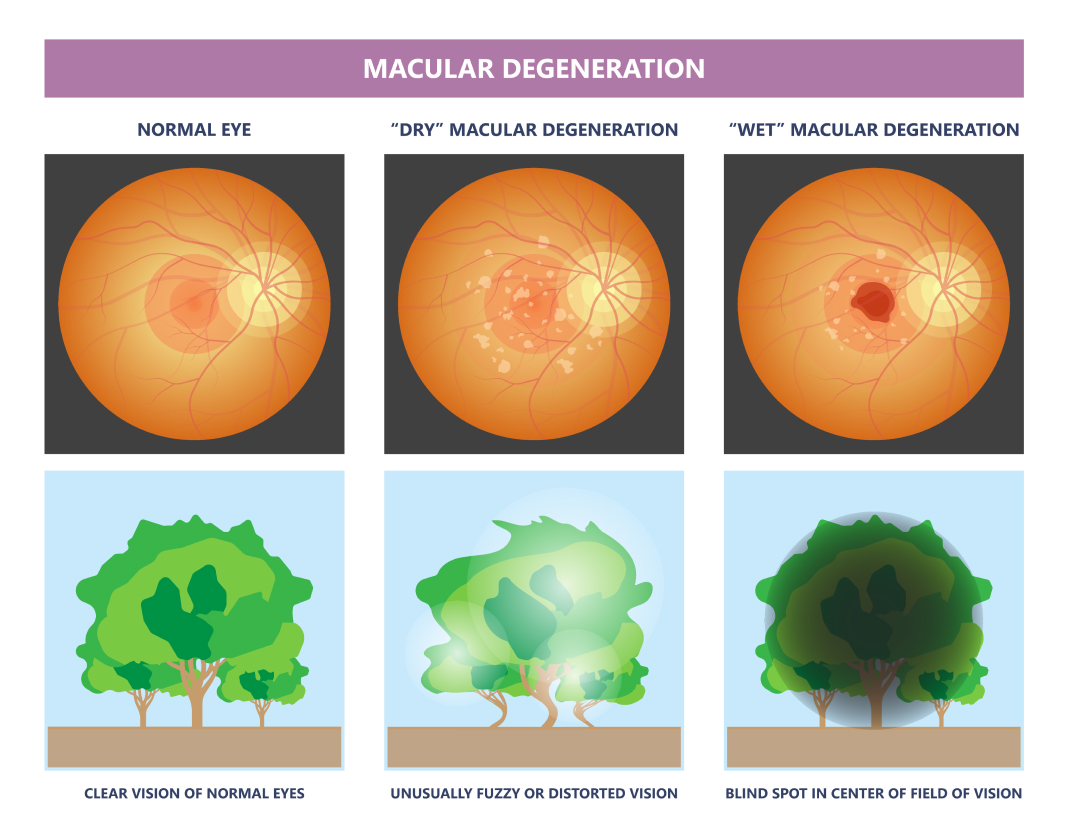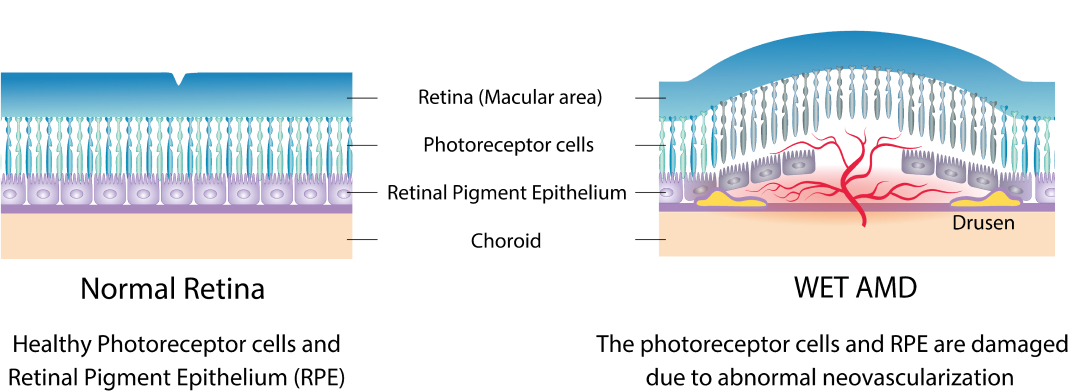As the most common cause of vision loss in patients 70 years and older, macular degeneration affects the middle of the retina, time and age causing it to degrade.

Types and Impact
- Dry macular degeneration: The majority of patients experience dry macular degeneration, characterized by the presence of yellow deposits called drusen in the macula. As drusen accumulate, central vision can be affected, leading to visual differences and blind spots.
- Wet macular degeneration: Although less common, wet macular degeneration poses a higher risk of vision loss. It occurs when abnormal blood vessels, known as choroidal neovascularization, grow and leak blood and fluid into the retina. This can cause distorted vision, blind spots and permanent vision loss.

Risk Factors and Monitoring
- Common risk factors: The development of macular degeneration is influenced by various risk factors, including genetics, smoking, high blood pressure, obesity and certain health conditions.
- Importance of routine eye care: Monitoring your eyesight regularly and receiving care from our expert optometrist, Dr. Reed Gibb, is crucial for detecting any changes and managing macular degeneration effectively.
Treatment Options
- Dry macular degeneration management: While there is no cure, injectable medications can be administered to help revert dry macular degeneration to a less threatening form.
- Wet macular degeneration treatment: Currently, injectable medications are the primary treatment option for wet macular degeneration, aiming to inhibit the growth of abnormal blood vessels and prevent further vision loss.
Schedule an Appointment
If you have concerns about macular degeneration or notice changes in your vision, contact Red Cliffs Eye Center at 435-634-0420 to schedule an examination. We are dedicated to providing comprehensive eye care and addressing macular degeneration in St. George, Utah, as well as serving patients from Garfield County, Utah, and Ely, and Lincoln City, Nevada.
